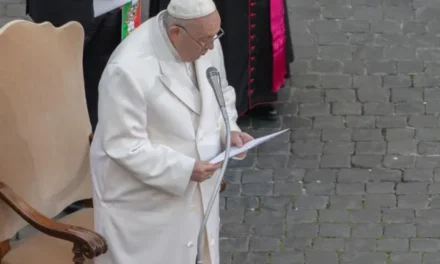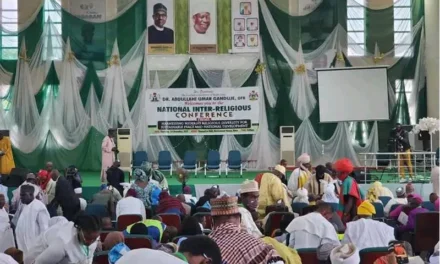Catholic Bishops from Europe who met their peers in Africa at a seminar in Nairobi, Kenya have concluded their meeting with a pledge to foster collaboration in tackling Church issues that affect the two continents.
In a press release following the four-day seminar that ended Friday, January 26, the delegates who focused on various issues including the youths, the Synod on Synodality, and the reform of the Roman Curia underscored the need to “cultivate a culture of fraternity.”
“As we look forward to the upcoming session of the Synod on Synodality, we, the Bishops of Africa and Europe, are more committed than ever to deepen our relationship and collaboration,” they said in the statement they issued Thursday, January 25.
“We understand that our unity in Christ is pivotal to our mission and that we are all learners in this shared journey of faith.” They added about the seventh joint seminar of the representatives of the Symposium of Episcopal Conference of Africa and Madagascar (SECAM) and the Council of European Bishops’ Conferences (CCEE).
To foster unity between the two continents, the delegates said that it is important that their actions and words reflect the unity and love that Jesus himself prayed for.
“As we stand at a pivotal moment in our world, we, the Bishops of Africa and Europe, unite in a call to cultivate a culture of fraternity,” they said.
The delegates drew inspiration from Pope Francis’ exhortations which they say enabled them to recognize the “urgent need” to build bridges of brotherhood that “will renew and invigorate our continents.”
The Bishops from Europe and Africa who met at the Mariapolis Retreat Centre in Kenya’s capital emphasized their commitment to “creating a more harmonious and prosperous future for our diverse communities.”
They implored, “May God bless our joint efforts as we continue to walk together in synodality, uniting Africa and Europe in faith, hope, and love.”
The Bishops said that the Seminar had a special focus on the role and participation of the youth in the Church’s life and mission, adding, “We recognize that the youth bring unique perspectives and energy that are crucial for the Church’s growth and relevance, especially in contemporary times.”
The Church leaders reflected on the need to listen “attentively” to the experiences and the intuition of the young people with a commitment to their needs and aspirations.
Engagement with the youth, they said “is not a mere inclusion” but “a vital step towards ensuring a dynamic, vibrant, and relevant Church community.”
The Bishops also reflected on the first session of the Synod on Synodality that was held in Rome in October last year. They shared understandings from both European and African points of view while paying attention to “cultural and ecclesial identities.”
“This session highlighted the importance of a Synodal journey characterized by deep listening, discernment, and a commitment to transparency and dialogue,” they said.
They added, “The European experience, enriched by its diverse ecclesial identity, and the African perspective, with its emphasis on communal values and practices, both contribute significantly to the global Church’s journey towards a more synodal structure.
On the significant reform of the Roman Curia, as presented in the new Apostolic Constitution “Praedicate Evangelium,” the Bishops said that the reform “represents a milestone in aligning the Church with the demands and challenges of the 21st century.”
The reform, they said, “underscores a shift towards a more missionary, collaborative, and inclusive Church, where the laity’s participation is as vital as that of the clergy.”
- RECOWA-CERAO WELCOMES TWO NEW BISHOPS - July 26, 2024
- TODAY WE ARE TAKING UP THE THIRD SEGMENT IN OUR SERIES - July 26, 2024
- CHARACTERISTICS OF GREAT LEADERS SHARED BY A USA AUTHOR - July 25, 2024







